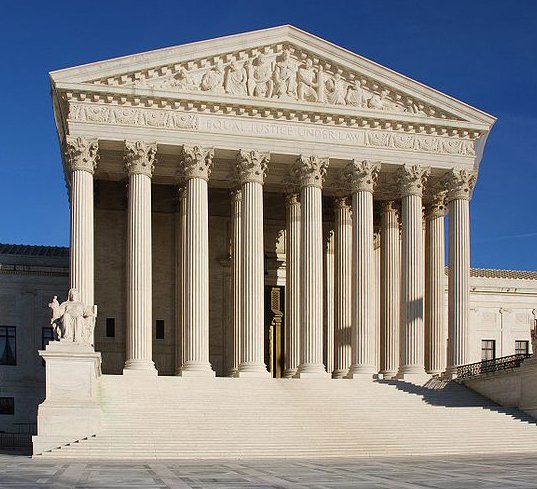The Supreme Court’s unanimous decision against Myriad Genetics was a legal faceplant for the company, but it won’t affect their sales much, they say.
“I don’t think this is going to have a material impact on our business,” a Myriad spokesperson told MM&M last month. “We have 24 patents on those tests, and those have 501 claims. At issue [in the Supreme Court case] are nine of those 501 claims, and even if we lose all nine, we still have 492 claims that provide intellectual property protection.”
Indeed, the company issued a press release celebrating the Supreme Court’s upholding of its patent claims on complementary (or synthetic) DNA. The Court said companies could patent synthetic DNA but not naturally-occurring DNA that had simply been isolated. At the April hearing, a company lawyer argued that isolating the BRCA-1 and BRCA-2 genes was analogous to carving a baseball bat from a tree. Chief Justice John Roberts quipped that it was more like snapping off a branch.
However, the Salt Lake City company’s window was narrowing even before the decision. Major patents on the firm’s BRACAnalysis tests, which launched in 1996, start going off-patent next year, and while the company says its IP bulwark will hold through 2018, it will soon be facing competition from a host of less pricey tests. The tests can spot genetic mutations—like those that prompted Angelina Jolie to undergo a radical mastectomy—indicating very high susceptibility to breast and ovarian cancer.
Affordability did not figure in the Court’s decision, but it was a big part of the case against Myriad, which counters that 95% of the tests it runs are covered by insurers (the standard test costs $3,300, the BART add-on around $700). “You’re not going to submit samples to them if you know you won’t get coverage,” said Sandra Park, senior staff attorney on the Women’s Rights Project at ACLU, which argued the case on behalf of the Association of Molecular Pathology (AMP). “If you talk to genetic counselors, they often have patients uncovered, so they’re scraping together donations.” Many insurers won’t cover the BART test, which can catch rare, cancer-linked rearrangements of DNA that the standard test doesn’t, says Park, and uninsured patients can’t afford to pay for the tests out of pocket.
The case could have substantial IP law implications for the drug, device and diagnostics industries at the dawn of the age of personalized medicine, and industry policy and legal hands are nervous. Trade group BIO said in an April statement: “The Supreme Court is being asked to categorically strike down a large class of patents based on the purported marketplace behavior of a single genetic diagnostic testing company. We are concerned that this case could potentially affect many biotech companies whose activities have nothing to do with the clinical testing services that are at issue in this litigation … The term ‘gene patent’ is misleading, because patents cannot cover the genes that exist in humans, plants, animals or microbes. Contrary to what has been said, patents confer no ownership over genes. Nor have the patents which are allowed stifled research, harmed patients, or interfered with medical care.”
Au contraire, said the AMP, which noted that Myriad has aggressively blocked other entities from pursuing research on those genes or offering testing. The Court’s decision can only be a boon to innovation, said AMP executive director Mary Williams.
“This will open the door to investment in diagnostics,” Williams told MM&M. “If you have a test that relies on patented DNA, you’re held hostage to whatever technology the IP holder chooses to apply, but with access to genomic sequencing open to all, companies are free to develop and market their tests and that’s a huge win for patient care.”







